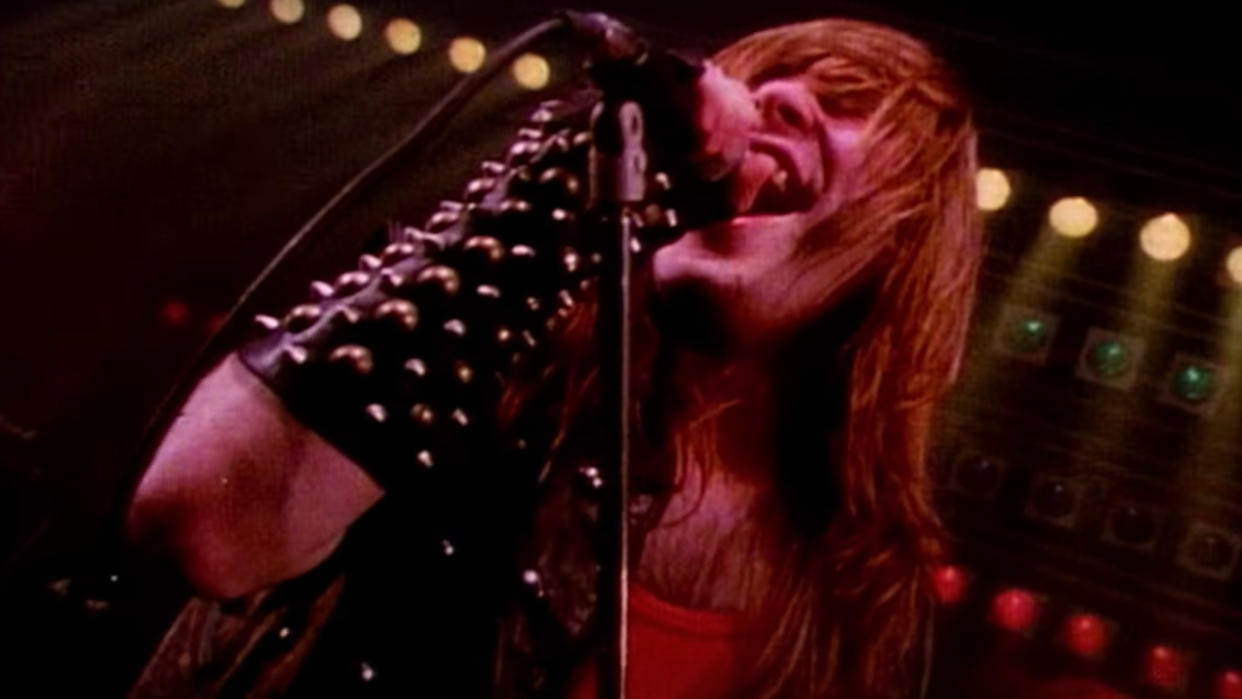“We had to pick the single before we recorded anything.” Run To The Hills: How a rallying cry against colonialism became Iron Maiden’s signature song

Occasionally, throughout music’s vast and tumultuous history, a song emerges with such seismic force that it claims iconic status before its first chorus even hits. Enter Iron Maiden’s Run To The Hills. Released in 1982, Run To The Hills was a lightning bolt that ripped through the musical zeitgeist, challenging not only the sonic conventions of heavy metal but also the sanitised histories purveyed by Western academia for decades.
The track – released as the first single off of Number Of The Beast – tells the story of the European conquest of North America. It comes from the perspective of its blood-drenched plains and prairies, where European immigrants slaughtered tens of thousands of indigenous people and eradicated entire civilisations. Today, this brutal land grab is euphemistically hailed in school books as “Manifest Destiny”.
Maiden bassist Steve Harris penned the track, pointedly rejecting whitewashed popular accounts in favour of violent and unsparing historical accuracy – and a bit of pulp fiction.
Speaking to Rolling Stone, Steve explained, “We’ve always been fascinated with Western movies and books. I was interested in a lot of things but I had never been to America at that point. I just used to read a lot of books by an author [of Western novels] called Louis L’Amour and I got inspired. The first few lines of the song were definitely inspired by reading those types of books.”
Entering the studio in January 1982, the sessions for what would ultimately become The Number Of The Beast were fraught with tension. Maiden were in the midst of a tectonic shift, with former Samson vocalist Bruce Dickinson recently onboard as their new frontman, replacing Paul Di’Anno. Maiden’s 1980 self-titled debut and its 1981 follow-up, Killers, had proved that the band had tapped into something stridently thrilling, and they had begun to generate serious commercial momentum.
However, timing-wise, Maiden were in a vice. In addition to their new singer, the band had a British tour booked – but their forthcoming new album would not be ready in time for it. So, they needed to release at least a single to keep the momentum churning. Consequently, as Maiden worked through their first batch of new music with Bruce, choosing a new single was the single biggest decision on the docket.
“We had to pick the single before we recorded anything,” said Bruce in a 1998 Maiden biography also called Run To The Hills. “We were, like, ‘Oh, fucking hell!’”
The band asked producer Martin Birch for his nomination and he told them that, hands down, Run To The Hills was the one. “So, thanks to Martin’s prize-winning ears,” said Bruce, “that’s what we did, and it turned out to be exactly the right choice.”
“The right choice” doesn’t begin to tell the story. From the song’s iconic opening lick, it was instantly timeless. Each note, a clarion call, performed with a fury and passion that would echo across time, embedding itself into the very fabric of heavy metal’s rich tapestry. Run To The Hills unleashed roaring guitars, galloping bass lines and explosive drum work, masterfully bottling the electrifying power of the fiery New Wave Of British Metal. With Bruce’s skyscraping vocals and its blistering riffs, the single was the kind of anthem that dared mainstream radio to ignore it even as it acted as a klaxon across global metal culture that a new force had emerged.
When it was released, the impact was immediate and widespread. Run To The Hills charged up the charts, reaching number seven in the UK Singles Chart. It generated chest-pounding acclaim across the globe, renowned for not only its pure sonic force but also for its controversial and thought-provoking lyrics. Some radio stations refused to play the song, citing its inflammatory content.
For every door that closed, though, two more opened, with a new generation of fans raucously applauding the band’s raw and unapologetic honesty. At a time when heavy metal was becoming a punchline for thuggish behaviour and knuckle-dragging misogyny, that Maiden would treat their fans as intelligent adults was a rousing and welcome gesture.
Run to the Hills also heralded the arrival of The Number Of The Beast, one of Maiden’s most important albums. The track helped propel Number… to commercial success, with the release reaching number one in the UK Albums Chart. Its groundbreaking global success signalled the birth of a new age of metal: one that was unabashedly aggressive yet melodically sophisticated. On the album’s supporting tour, the granddaughter of an Apache chief travelled from Nevada to a stop in Texas to present the band with gifts as a gesture of thanks.
Now, 40 years on, Run To The Hills remains as relevant and powerful as ever. It stands as a testament to Maiden’s unparalleled ability to marry storytelling with musical craftsmanship. In an era where music can often feel fleeting and superficial, the song is a blazing reminder of the potential for music to thrill, provoke and entertain.
